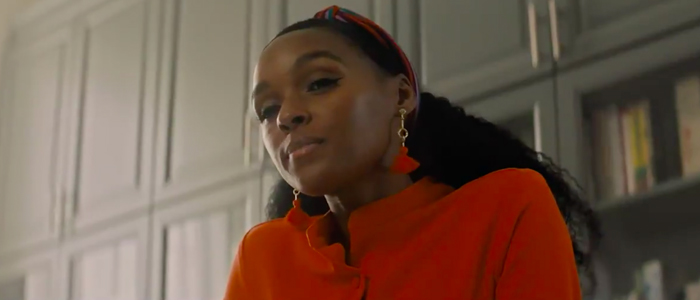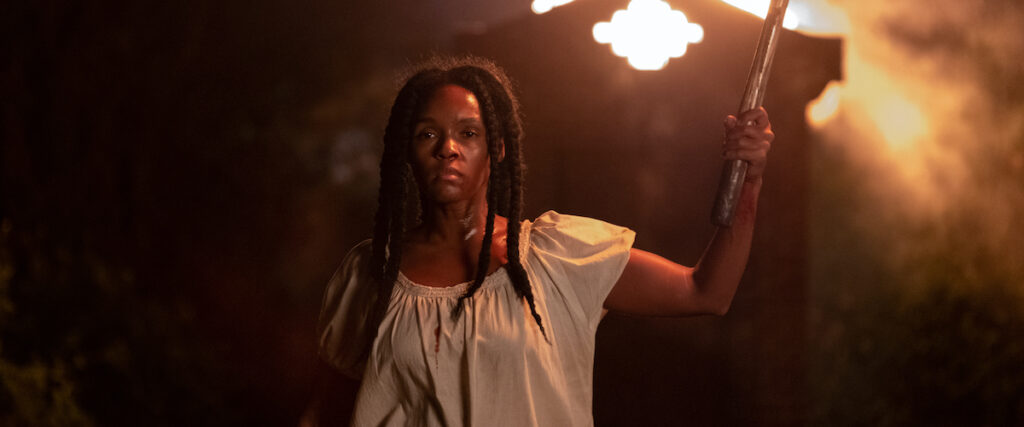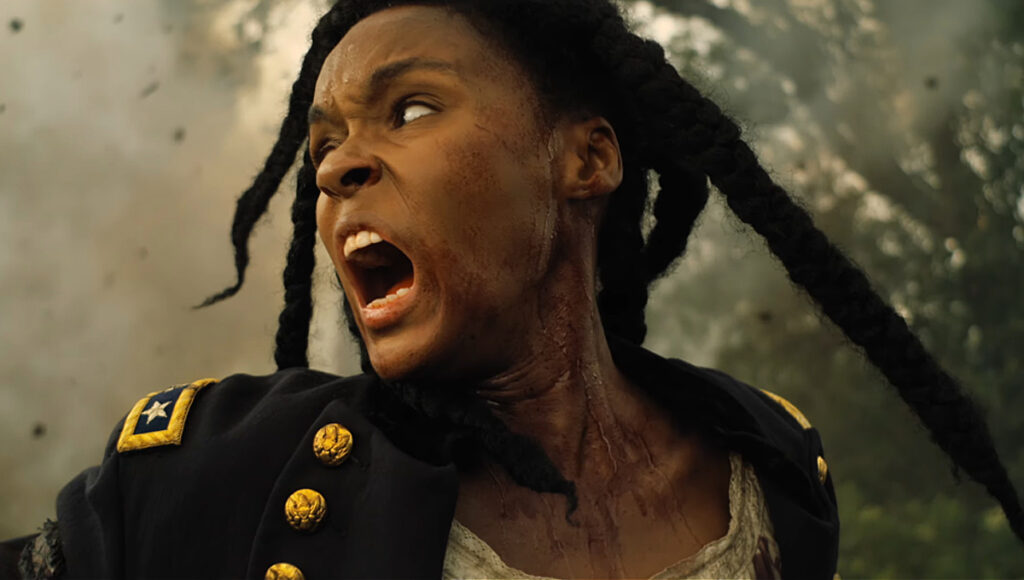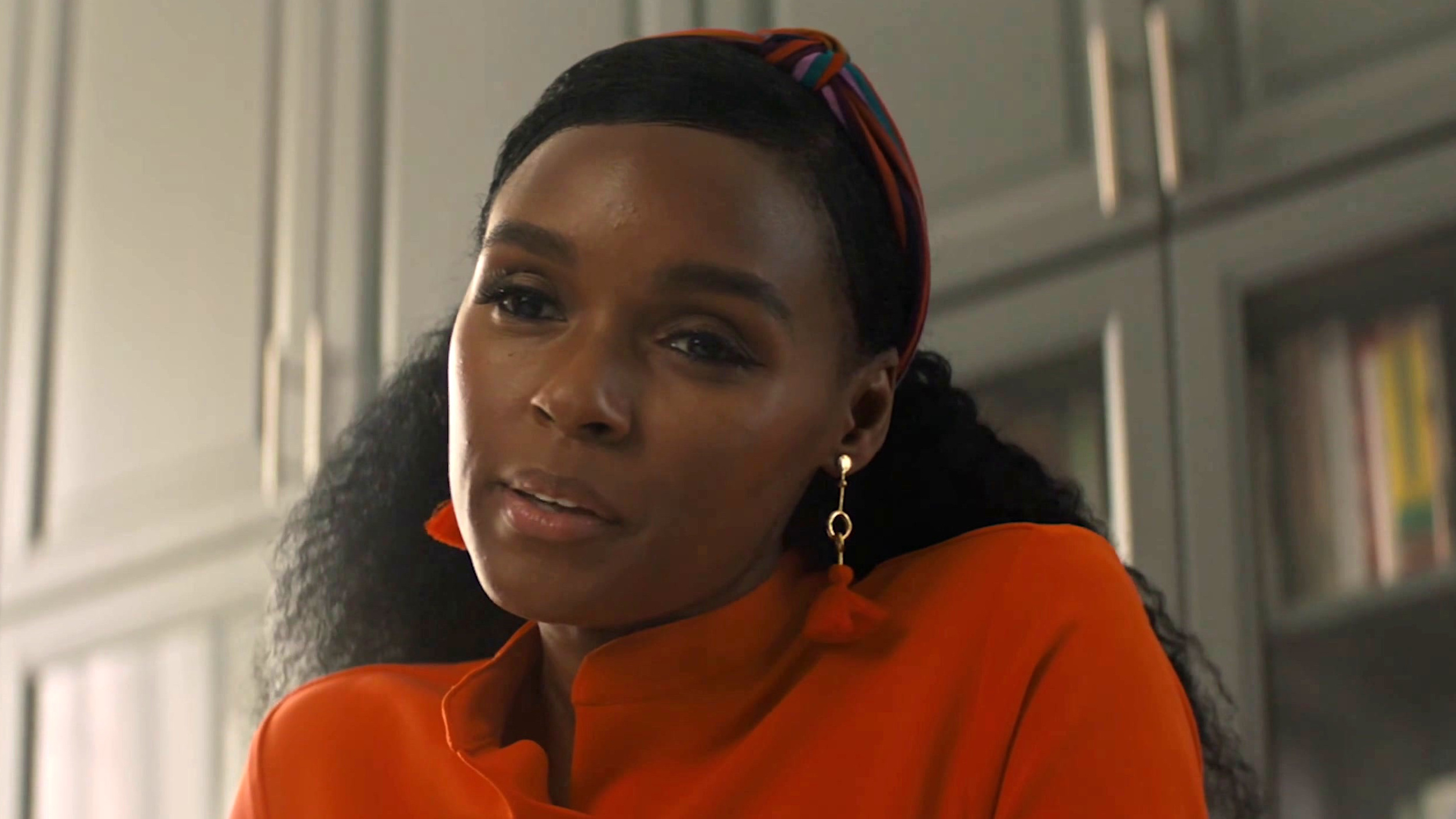Antebellum is an interesting cinematic problem. It’s gorgeously shot. Gorgeously costumed. Gorgeously acted. Just brilliantly done, top to bottom. And yet, when looking at what the black culture thinks about this movie, I heard things like “Black Trauma Porn,” and “Exploitative.” So, yeah, I’m not sure if this movie is for you. Personally, I had a very significant issue with the screenplay. The “shocking” twist not too shocking, and lacked punch in that it hits at about the first third of the film as opposed to the end. And yet, I learned so much from this film and think there is plenty here to discuss and grapple with, IFFFFF you are open to doing so. So, if you haven’t seen the film…as always, here’s a trailer, but then after that? You’ll need to move along because there are really cool spoilers here that we will be discussing in detail. Alright, let’s get to it: Antebellum Movie Discussed and Explained.
Spoiler Filled Walkthrough of Antebellum
The movie opens in the Antebellum south – otherwise known as the plantation era – at a Louisiana plantation that is specifically run by the armed forces of the south’s military. The Civil War is apparently raging. And we spend our time with the black slaves who keep the plantation running. And they are treated diabolically. They aren’t allowed to speak, or act, without explicit permission. But as the movie starts, we get hints that an escape has just been attempted and it has cruelly been put down. Which is when we are introduced to the 1940’s Hitler-era crematorium, which is central to the story, the plot, and the conclusion actually, now that I think about it. But there are little tips that there is something weird going on here. Like for example, why is it that they are picking the cotton, and then burning it? Hrrmmm. Maybe that’ll be a significant detail here in a bit.
After a fleeing slave is shot, and burnt in the crematorium, we are introduced to a new group of slaves to the plantation. One woman in particular, who unfortunately is pregnant, is named Julia, and is put under the watch care of Eden. (The forced renaming seems to also be really significant, not only to the plantation owners, the Confederate general that runs the place, and mistress of the plantation Elizabeth. I’m assuming that this is an indication of their acceptance of a new situation, acceptance of their (new?) ownership, acceptance of their fall? Seems really important somehow. I mean, Eden is branded for her lack of acceptance of her new name.) Anyway, Julia is not happy about this at all…understandably. Was she a slave previously? Was her previous situation better? At this point in the film we really don’t know, except she mentions that she comes from North Carolina, and Eden came from Virginia? Or something like that. And at the time, I took to mean, Virginia was a less strict state on slaves than Louisiana, which, was historically true. But that wasn’t what they were getting at at all.

Things go from bad to worse for Julia when that evening at a dinner reception with the soldiers, Daniel is offered Julia for some private time. He’s obviously supposed to have sex with her, but seems nervous about the whole thing when push comes to shove. But when Julia lets him know that she knows he’s different, that he doesn’t have to do this, he beats her… causing her to miscarry her child the next day. That in turn causes her to commit suicide by hanging herself in her sleeping quarters. And knowing what we know at the end, this is especially tragic. I mean, heck, all life is precious. So it’s horrific that a slave would be treated like a slave. It’s horrific that this was ever historically a thing. And it is also terrifically awful knowing what we know is actually happening here. Look, it’s really really bad any way you slice it.
Here comes the big jump. At the 38 minute mark (literally 40% into the film, we’ll talk more about this later I’m sure) we watch as the Confederate General running the plantation (he’s never named in this timeline, but we know that he’s Senator Denton in the next timeline) rapes Eden, and then falls asleep. Eden wakes to a totally different time, different identity, a different world frankly. Her name is Veronica Henley. She’s a famous sociologist who has recently published a new book entitled, ‘Shedding the Coping Persona.’ We should stop here for a moment. The subtitle of this book is, “the metamorphosis of a revolution…or a roadmap to revolution for historically marginalized people.” And if that isn’t a clearer description of what this movie is 100% all about, I don’t know what is.
Think about it. Regardless of what the twist is about at this point – we can already see that we are dealing with a historical Antebellum south, while simultaneously dealing with a modern context. Two different times. And if the book is about shedding this coping persona – or a roadmap for historically marginalized people – then this is about modern day healing for those that have been hurt by the past. Right? What is a coping persona? Here’s what Wikipedia has to say about coping: “Coping means to invest one’s own conscious effort, to solve personal and interpersonal problems, in order to try to master, minimize or tolerate stress and conflict. The psychological coping mechanisms are commonly termed coping strategies or coping skills.” But in this context, it’s a highly negative thing. To have a coping persona means that one is hiding from the truth. It means that we are avoiding the truth of a thing. It means that, though wronged, the person wronged is minimizing the attack, or the wrong, in order to psychologically deal in a normal world. Worse! It implies that society today expects you to cope. To minimize the impact or harm of your past. The past here being slavery. Which, to be frank, is literally unjustifiable…but I can see how day in, and day out living, would require people of color to minimize the impact of slavery in their past. Me? I’d be like, nope, not getting out of bed, SLAVERY. It’s a really complicated situation – that I literally know 0% about. Nothing. Sure, a couple years ago I adopted two children out of Haiti who happen to be black, and I’ve seen the stares. I’ve seen the looks. But I know nothing about this situation – or this problem.
Should we talk about this futuristic dream state for a moment? Either A) Eden is a prophet, and her dreams are oddly accurate about what the future will look like including the prediction of flat screen TVs, cars, and iPhones? or B) Veronica actually lives in the future, and has a consistently accurate nightmare about the past? Or the final option is C) This is futuristic world is Eden’s past? But how can it be?? Let’s just keep going.
Veronica is heading off to a conference in Louisiana to give a talk, and also promote her book. Obviously she doesn’t want to go because that means saying goodbye to her daughter and her husband Nick. But book tours are a terrible master, so, off she goes. Later that day, we see her meet up with a couple of friends, and they go out for dinner. But there we see Elizabeth again, you know, the lady of the plantation? The evil woman incarnate? She’s here at the hotel! Wha? So, very quickly, you probably realized that this was the same timeline as the Antebellum section of the movie, just earlier in Veronica’s timeline, right? Please tell me that that quickly became obvious? Because it really wasn’t that big of a twist. Well, after some high jinks…Veronica gets in the wrong Uber, and is quickly kidnapped. AH! So this is how she ends up at the “plantation” – and it’s how she was originally abducted. Fascinating. Got it. So, somewhere in Louisiana is a historical plantation that is holding individuals against their will. They are being raped. And are being used as a plantation attraction accoutrements? Awful.
Wait, stop, isn’t that even worse? I mean – God forgive me for what I’m about to say, that anything could be worse than slavery, but here I go – isn’t this literally worse than slavery!? (Gah! I couldn’t stop myself.) But it is worse. Slavery was abhorrent. And horrific. And a blight on our collective country’s consciousness. Can anything be worse than infinitely bad?!? And yet!? This is an amusement park! Oh, wait. I think I just spoiled the movie’s trick. But you should be coming to this already at this point in the movie. And I can’t not talk about it. Plantation society lived off of the backs of free labor. It ground humans into nubs by abusing them into profits. And this is an interesting corollary in that it too is abusing humans into profits, but in different ways. Instead of selling the cotton that these poor people were creating, and cultivating with their sweat and tears, they are props in a reenactment park.
And I have to say, I spent years of my life running up and down the East Coast basking in the Gettysburg’, the Williamsburg’s, the Antietam’s, etc., etc., etc. I watched as a man shod a horse in an authentic 1700’s fashion. I watched as a woman made corn bread. I watched civil war reenactment battles. Or hear how a surgeon would amputate a leg blasted into smithereens by a round shot. I read the book Killer Angels more times than I can count. I have literally watched as “Washington” and his crew of boats crossed the Delaware on Christmas morning. And yet, at this park, they have used it as a cover for the systematic abuse, rape, and pillaging of black people. It’s really really sickening. And yet??!?! Needs to be discussed. Because this may just be a metaphor for MAGA and some bigger topic that is eating its way out of our collective insides. (Need to take a breath. Out of breath. Gah. I’m going to come back to this in a bit.)
After waking in the morning after Julia’s suicide, and her memory/dream, she lets Eli know that she is going to make a try for an escape. Veronica steals the General’s phone, but then drops it when they are running for cover. Daniel finds it, and as they need it, Eli attacks Daniel, and kills him to get it. A massive fight ensues with the General when Veronica and Eli try to get it unlocked. Veronica is able to send her husband her location pin, as well as talk to him for a moment to let her know what has happened. Eli ends up dying after the fight with the General. But the General is mortally wounded, and Veronica slides him into the crematorium before she lures Jasper and another soldier in there as well. “COME HELP, THE GENERAL IS HURT” and then she locks the door from the outside. Veronica sets fire to the entire crematorium building, killing the soldiers trapped inside.
Grabbing the General’s horse, she rides as fast as she can in an attempt to flee the park. Hearing the chaos going on at the crematorium, Elizabeth joins the chase for ‘Eden.’ And as she does, we learn that Elizabeth has been responsible for the hand picking of each of the people brought to the park in order to enslave them. But Veronica was slightly different. It was her father’s express insistence that brought Veronica here. Was this because of her book? Was it because she would be a prize? Was it just one big screw you to black people for being smart, successful, and resilient? Who knows. But eventually, Veronica knocks Elizabeth off her horse, slips a rope around her neck, and drags her at speed into a Robert E. Lee statue, that kills her instantly. And as she continues fleeing, she realizes she was part of a reenactment “amusement park” of sorts. And it was the General who owned the park, and created it, which we learn from the sign on her way out “Blake Denton.” Veronica is able to make it to the police, which then come and free the other entrapped people inside the park. And ultimately, during the credits, we watch as the park is bulldozed. The end.

Thoughts on the Movie Antebellum
My first thought is that I am white. I understand that my perspective on a movie like Antebellum is jaded. Yes, there were some sections of the film that were very difficult to watch. Yet, I also have come away richer, and wiser for the interaction than I was before having watched the film. Was it Black Trauma Porn – I don’t think so. But again, my opinion is really not valid on that question. I thought the film attempted to show how perfectly smart, and successful black individuals could be abused by others that is well beyond their control. Regardless, with that said, I totally get many will see this film and think that it is exploitative.
Personally? My real trouble with this film is on a totally different level. Not to spoil a totally different movie for you (all those of you who haven’t seen the 2004 movie The Village, should probably avert your eyes now) but have you seen M. Night Shyamalan’s The Village? Literally, this is a much edgier remake of that same movie…but literally, the twist of both these movies are in the same headspace. Shyamalan created an Amish-like world so full tilt in its reclusiveness that the inhabitants weren’t even aware of the modern world. Antebellum is a similar type experience that shields the viewer from the truth that Veronica is actually a modern day, celebrated black author, shackled in some sort of retrospective horror show. But let’s be clear here… the reveal definitely could have been handled more adroitly. Many little Indie films have carried the tension between two worlds in a better way than Antebellum handled it. Like, I don’t know…take for example the movie OtherLife. Or the episode of Black Mirror entitled Playtest. Which is a shame, because this movie really had the chance to be great, if only Gerard Bush and Christopher Renz had solved this issue it really could have been a Sixth Sense for its day.
The twist not with standing…this was an amazing movie, and I really wanted it to succeed in spite of itself. You might not dig it. But think about all the cultural issues a single movie is fearlessly picking up and engaging with. Especially in a year when Trump is insensitively (best case) working hard to divide the country by race. Heck, there is rioting in the streets right now because of deaths caused by the police in really terrible ways. (Breonna Taylor? Terrible.) It is a cauldron of chaos right now. And in the middle of this miasma of pain and suffering walks Antebellum. A movie that posits an adventure park with real life slaves? Woah. It’s more like an episode of Black Mirror than it is a proper movie.

Antebellum was only made because it is telling us a story about ourselves today. Not yesterday. Today. It is telling us that the inequalities of the past are alive and well and kicking today. I mean, the movie says as much with the quote that starts the movie, and then is commented within the film itself: “The past is never dead – it’s not even past.” William Faulkner. Which really is a wise sentiment. Personally, in my own heritage, and family I know this to be true. The sins of the father, and all of that. But how much more for a national tragedy like that of our collective experience with slavery?!?
I recently had a chance to listen to an amazing podcast that intricately dove into the problem of race in America called, “Nice White Parents,” a show all about schooling and integration, segregation, and school choice and just how messy the entire conversation is. I have to say, Nice White Parents is one of the greatest titles for anything of all time. Why? Because it’s a podcast about the impact white families have on schooling EVEN WHEN THEY ARE NOT THERE. And outside of actively divesting control to others, white people will always control how this conversation will go down. Which is a really sad reality. I mean, whether their intent is good, or bad, it doesn’t matter. The truth still remains…white people will actively control any and all situations they are even adjacent to in this world of schooling. But the funny thing to me is that some people would prefer to say that racism doesn’t exist anymore. That the impacts were resolved years ago, and now we are just all learning how to get along together. But this podcast points out just how untrue this idea really is.
Think about it a second – if you are white, does the phrase, “white privilege” offend you? If so, can you just unpack that a moment and figure out why? I mean, yeah, it should offend you. I’m offended. Because it hurts to hear. Can you though delve into that idea a moment, and realize that you are seeing things via a lens that are defined by what you have generously been given.
Wait, here we go. Here’s something most of us can relate to. I’m not drop dead gorgeous. (Bummer. But I am not.) And yet, I can watch as a drop dead gorgeous person is fawned over. Right? Male or female, doesn’t matter. For them, they don’t have to think that they have “Gorgeous Privilege” it’s just the way life is. Having people run to grab you that orange juice you don’t necessarily want, well, that’s just how life has been your whole gorgeous life. Right? You’ve seen this happen. Similarly for us white folks, we may not see how well you are treated when you walk into a store, why? Because it just is what it is.
What if you were to take an average looking white male, black male, white female, and black female and send them all into a car dealer? You work hard to dress them all similarly, and negotiate similarly. But when you watch as a white male, on average is charged $350 above dealer cost, and a black woman is charged, on average, $1,250 above the dealer cost. (White women were charged $500 above. While black men were charged $750 above.) Why is this happening? Well, because overt racism, yeah, maybe? Overt racism? Maybe. (More on this topic here and here if you are interested in the studies and the debate.) The bottom line though is that genders and races are treated differently. This is a certifiable fact. There are tons and tons of research studies that bear this truth out. So for us to be offended by the phrase “white privilege” is really just kind of cute, and we need to get over ourselves.
But at the end of the day, the screenplay, while being really fearless, and courageous…was a flop. I really wish that screenplay authors would start bringing their Hollywood Approved screenplays here so that we can show them how to do these films in a better way. And maybe all we would need to do is to point them to a couple of other similar films that figured out how to do the drop in a more intriguing fashion. So many films that we have discussed here on THiNC. have dealt with all these same issues, and have done it for a mere FRACTION of Antebellum’s 14.6 million budget. Did the film make me think though? Yes. Heck, yes. And I hope that even though it missed the target, it will cause good conversations about the issues of race and racism here in this country.
Edited by: CY

